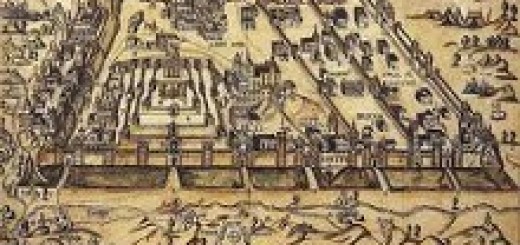By Avner Friedmann
Avraham, the first Jew, was given the mitzvah of circumcision as the sign of the covenant between G-d and him. “G-d said to Avraham, ‘And as for you, you shall keep my covenant – you and your offspring after you, throughout their generations… every male among you shall be circumcised. You shall circumcise the flesh of your foreskin, and it shall be the sign of the covenant between me and you’”[1].
Turnus Rufus, the Roman governor at the time of Rabbi Akiva, was a notorious Jew hater, who often argued with Rabbi Akiva about the validity of Torah and mitzvot. One time, he asked Rabbi Akiva, “Whose deeds are more perfect and complete; G-d’s deeds or man’s deeds?” Rabbi Akiva replied, “Man’s deeds are more complete.”
Turnus Rufus had expected Rabbi Akiva to answer the opposite, so that he could corner him with his follow-up question – “if G-d’s deeds are more complete, why then, do Jews perform circumcision by removing the foreskin. Was it not G-d who placed the foreskin on the body?”
Rabbi Akiva said to him, “I will prove to you that man’s deeds are more complete”. He put a baked loaf of bread and unprocessed sheaves of wheat in front of him and asked, “Which one is more complete, the baked bread or the sheaves of wheat?” Turnus Rufus then asked, “But if G-d desires circumcision, why did He not create man circumcised?” Rabbi Akiva replied, “Why does the child come out of his mother’s womb with the umbilical cord attached? Why does the mother have to sever it? G-d commanded us to do the mitzvot so that we can attain completion through our own actions”[2].
In the account of creation, the Torah tells us that[3]: “G-d blessed the seventh day and sanctified it because on it he abstained from all his work which G-d had created to do”. The word “to do” seems superfluous here. What does it add to the meaning of the verse? However, our rabbis explain that G-d created the world incomplete, in order to give man the ability to complete the act of creation, thus becoming G-d’s partner in creation, so to speak. He left it for man “to do”; that is, to complete creation by perfecting himself through the mitzvot. This ability to complete the act of creation applies to all the mitzvot, but it especially applies to the mitzvah of circumcision, which is the sign of the covenant between HaShem and Yisrael.
“When Avram was ninety-nine years old, Hashem appeared to Avram and said to him, I am Almighty G-d. Walk before me and be complete. I will place my covenant between Me and you and I will multiply you exceedingly”[4]. Rashi tells us’ “This refers to the mitzvah of circumcision. Through this commandment you will become complete. As long as you have the foreskin you have a flaw before Me and are not complete”.
The foreskin represents the spiritual barrier between man and G-d and between the physical and the spiritual. The word for foreskin in the Holy Language is “Orlah”. When reversed, the letters of the first part of the word- “Or” (ער) spell the word “bad” (רע); while the second part of the word, “Lah” (לה); has the numerical value of the word Jew (יהודי=35). This hints that the “Orlah” is spiritually bad for a Jew and should be removed. This being the case, the mitzvah of circumcision removes the barrier and makes it possible for the Jew to connect to G-d, whereas as long as a Jew remains uncircumcised, G-d forbid, it is an impediment to his spiritual potential.
May it be HaShem’s will that through Torah and mitzvot, the verse,[5] “You shall circumcise the foreskin of your hearts” will be fulfilled, and all spiritual barriers between Am Yisrael and HaShem will be removed, with the true and complete redemption, through our righteous Moshiach, speedily, in our days. Amen.
[1] Genesis 17:9-11.
[2] Midrash Tanchuma, Tazria, 5.
[3] Genesis 2:3.
[4] Genesis 17:1-2.
[5] Deuteronomy 10:16





















